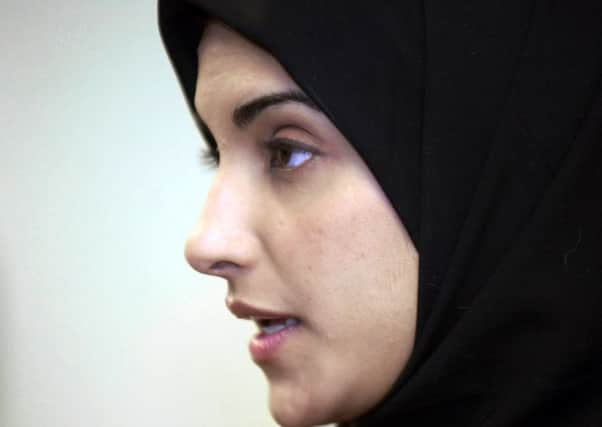Chris Marshall: Police accused of losing focus on communities


The decision, first revealed in this newspaper in June, is part of the national force’s much-needed attempts to recruit more officers from ethnic minority backgrounds.
The inclusion of the headscarf typically worn by Muslim women comes after figures from the force show there were just 127 applications from black and Asian candidates in 2015-16 – 2.6 per cent of the total number of people applying for a job with the national force.
Advertisement
Hide AdAdvertisement
Hide AdAttempts to address issues with representation in the force are as welcome as they are overdue. But another issue threatens to undo much of the good work being done at a strategic level by the force.
Rightly or wrongly, there is a perception Police Scotland does not treat hate crime seriously enough.
In a submission to a Scottish Government consultation of police priorities, the Scottish Council of Jewish Communities (SCoJeC) said Jews felt their safety was “not a priority” for Police Scotland and that the “reassurance” offered under legacy forces had disappeared.
It said collaboration between the police and Jewish communities had become “less effective” since the formation of the national force in 2013, causing many to feel “more anxious and vulnerable”.
SCoJeC said that following an “upsurge” in antisemitic incidents in 2014, it had maintained close contact with senior police officers amid the “unprecedented level of fear and apprehension” being felt by Scotland’s Jews.
But it said the leaders of communities in Aberdeen, Dundee, Edinburgh and Glasgow had independently complained of losing the reassurance of named police officers since the formation of Police Scotland in 2013.
In a separate submission to the same Scottish Government consultation, Argyll and Bute Council called for the draft of strategic police priorities to put more emphasis on tackling hate crime as a “key public concern”.
The council said is wanted to see more focus on strengthening local partnership work and increasing community cohesion.
Advertisement
Hide AdAdvertisement
Hide AdThe complaint about community policing is one that has been heard time and time again since the monolithic force was formed in 2013.
SCoJeC’s submission to the Scottish Government quotes from the organisation’s own report, What’s Changed About Being Jewish in Scotland, which sought out views on policing.
One respondent is quoted as saying that, since the formation of Police Scotland, they had lost the reassurance of “named police officers who specifically liaised with the ethnic minority communities”.
For decades Scottish policing has prided itself on maintaining close links with the communities it serves.
It was those sort of links which previously led the Community Security Trust, which helps safeguard the Jewish community across the UK, to describe Scotland as “the best country in Europe” for police-community relations.
However, there is now a perception that sort of good work has begun unravelling under Police Scotland.
It will need to be addressed or the situation at a local level threatens to undermine the way the force is perceived by minority communities nationally.